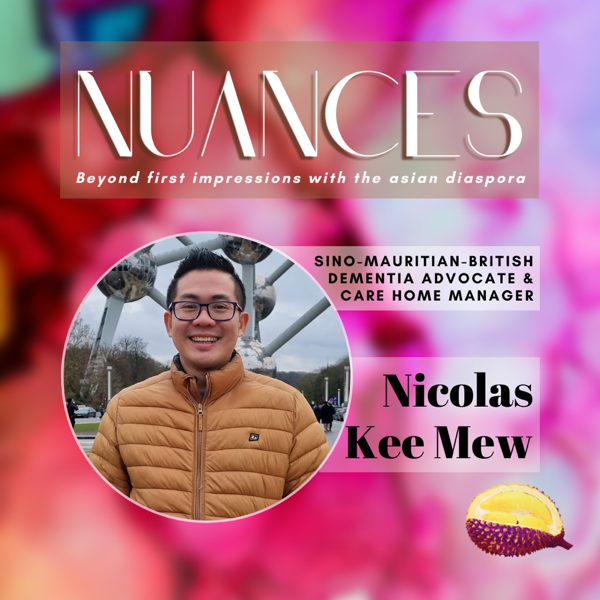Not enough data was available for Vietnamese, Korean and South Asian groups. Still, overall, Asian Americans had a lower incidence rate than white Americans. It was important for us to talk about it on the Nuances podcast because, according to the landscape, 40% of dementia cases could be prevented or delayed through education and lifestyle changes. That's a huge number. However, the Asian diaspora often has a lack of awareness that may be contributing to delayed diagnosis and treatment

Deborah Pardes
@DBPardes · 0:58
I'm so happy to hear you here and talking about the podcast that you have about this topic and specific to the shame in the Asian community and the ability for people to get out and diagnose this. I wanted to ask you, do you find, especially with the guests that you had, are there sort of the top five questions that a doctor would normally be told to ask family members to see if in fact there's the right kind of conversation going on around the kitchen table?

nuances podcast
@nuancespod · 3:33
Thanks for listening and thanks for the question. If I understood correctly, you're asking if there are ways in which the doctor can figure out what their attitudes towards dementia are. I'm not an expert in the dementia field by any stretch, but I am part of the Chinese diaspora and so I can speak to that in my family. It is is generally accepted and known that when you get older you lose your memory. So we have this term in haka Chinese called Tang

Deborah Pardes
@DBPardes · 1:23
But I feel like there's so much noise about dementia, and doctors, they themselves are always question what the best course of action is for. It definitely institutionalization is a last resort for so many cultures, as it should be, I think. But the role of a doctor in the family dynamic is always interesting to me because I think sometimes doctors don't have a chance to really ask the right questions, to understand the circumstance in which this person is living
